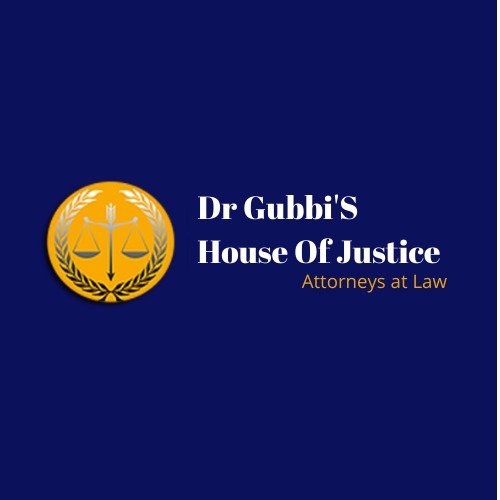Best Child Visitation Lawyers in Bengaluru
Share your needs with us, get contacted by law firms.
Free. Takes 2 min.
Free Guide to Hiring a Family Lawyer
List of the best lawyers in Bengaluru, India
About Child Visitation Law in Bengaluru, India
Child visitation in Bengaluru, India refers to the legal rights and arrangements regarding the access and time spent between a non-custodial parent or guardian and their child. These arrangements are typically made when parents separate or divorce and aim to ensure the well-being and best interests of the child while maintaining a healthy relationship with both parents.
Why You May Need a Lawyer
Seeking legal advice in child visitation cases in Bengaluru, India is crucial in various situations, including:
- Disputes over visitation schedules
- Modification of existing visitation orders
- Enforcement of visitation rights
- Protection against parental alienation
- Interference with visitation by one parent
Local Laws Overview
In Bengaluru, India, child visitation laws are governed by the Guardians and Wards Act, 1890, and the Hindu Minority and Guardianship Act, 1956. Some key aspects of these laws relevant to child visitation include:
- Preference for the best interests of the child when making visitation arrangements
- Courts consider factors such as the child's age, health, and wishes while determining visitation schedules
- The non-custodial parent or guardian has a right to visit the child unless it can be proven that it is not in the child's best interests
- Visitation orders can be modified or enforced through legal procedures
Frequently Asked Questions
1. Can grandparents seek visitation rights in Bengaluru?
Yes, grandparents can seek visitation rights under specific circumstances. However, the court assesses the well-being of the child and considers the best interests before granting visitation rights to grandparents.
2. Can visitation orders be changed?
Yes, visitation orders can be modified if there is a significant change in circumstances or if the existing order no longer serves the child's best interests. It is recommended to consult a lawyer to navigate the legal process for modifying visitation orders.
3. What if one parent refuses to follow the visitation schedule?
If one parent consistently interferes with visitation rights, legal action can be taken. A lawyer can help you file a complaint and seek enforcement of visitation orders through the appropriate legal channels.
4. Can visitation be denied if the non-custodial parent fails to pay child support?
No, visitation rights and child support are separate legal matters. Failure to pay child support does not automatically result in visitation being denied. The court emphasizes the child's best interests and considers each issue independently.
5. How long does the visitation process usually take?
The duration of the visitation process can vary depending on the complexity of the case and the court's schedule. It is advisable to consult with a lawyer to understand the specific timeline for your situation.
Additional Resources
If you are seeking legal advice or further information on child visitation in Bengaluru, India, the following resources may be helpful:
- The Family Court of Bengaluru
- The Juvenile Justice Board in Bengaluru
- Women and Child Development Department in Bengaluru
- Local legal aid organizations or NGOs specializing in family law
Next Steps
If you require legal assistance in child visitation matters in Bengaluru, India, it is recommended to:
- Consult with a qualified family law attorney who specializes in child visitation cases.
- Provide your attorney with relevant documents and information regarding your situation.
- Discuss the specific details of your case and any concerns you may have.
- Follow your attorney's guidance and work together to develop a strong legal strategy.
- Attend court hearings or mediation sessions as required and provide any necessary support for your child's well-being.
Lawzana helps you find the best lawyers and law firms in Bengaluru through a curated and pre-screened list of qualified legal professionals. Our platform offers rankings and detailed profiles of attorneys and law firms, allowing you to compare based on practice areas, including Child Visitation, experience, and client feedback.
Each profile includes a description of the firm's areas of practice, client reviews, team members and partners, year of establishment, spoken languages, office locations, contact information, social media presence, and any published articles or resources. Most firms on our platform speak English and are experienced in both local and international legal matters.
Get a quote from top-rated law firms in Bengaluru, India — quickly, securely, and without unnecessary hassle.
Disclaimer:
The information provided on this page is for general informational purposes only and does not constitute legal advice. While we strive to ensure the accuracy and relevance of the content, legal information may change over time, and interpretations of the law can vary. You should always consult with a qualified legal professional for advice specific to your situation.
We disclaim all liability for actions taken or not taken based on the content of this page. If you believe any information is incorrect or outdated, please contact us, and we will review and update it where appropriate.















